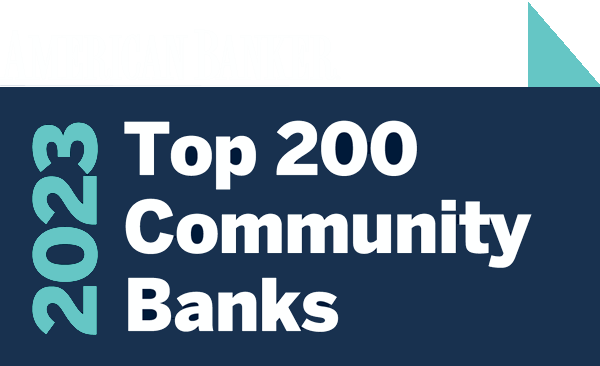By John Reosti, February 22, 2024
This Virginia bank wants to rewrite the rules for banking as a service

MainStreet Bancshares in Fairfax, Virginia, is taking a do-it-yourself approach to technology at a time when partnerships between banks and fintech firms are getting more complicated.
The $2 billion-asset MainStreet has trumpeted Avenu, its banking-as-a- service subsidiary, as a potential game changer since introducing it more than two years ago. At year-end 2023, MainStreet reported $35.3 million of Avenu deposits, $33.5 million of which were non-interest-bearing. MainStreet is forecasting Avenu will reach its projected breakeven point, $225 million of total deposits, this year.
As predictions go, that’s bold. If Avenu hits the target, it will have grown deposits more than 530%. The lion’s share of those deposits, moreover, would be non-interest-bearing, helping set MainStreet apart from an industry grappling with increased funding costs. It could also establish the 2-year-old subsidiary as an alternative to the way many banks have pursued embedded banking, through so-called middleware.
Many banks that jumped into the embedded finance arena did so with the help of a partner. MainStreet, by contrast, chose to go it alone, building Avenu from the ground up. MainStreet describes Avenu as an embedded banking solution that connects fintechs and their apps directly to a bank, no middleware involved.
Doing things differently has come with a cost, expressed largely in investor impatience with Avenu’s slow build-out. At the same time, it offers the prospect of meaningful opportunities if MainStreet succeeds in positioning Avenu as a solid dependable partner — and avoids the regulatory morass some banks that signed on to third-party banking-as-a-service solutions found themselves in.
We’ve tried to build a core processor for fintechs who would like to embed our banking services. If you want to come up with an app for a purpose, now all you have to do is focus on developing that app. You don’t have to focus on a customer identification program or all those other things.
– Jeff Dick, Chairman & CEO MainStreet Bancshares Inc & MainStreet Bank
Slow and steady
Embedded finance — simple in concept, more complex in execution — involves platforms permitting customers to access traditional banking services outside the narrow confines of a regulated bank or credit union. Think Google Pay or Amazon, which offers users buy now/pay later loans through a partnership with the fintech Affirm.
It’s a hugely important space for banks.
While calculations of the embedded finance market’s dollar value vary, experts agree it is growing rapidly as the traditional branch banking model appears locked in a slow, steady decline. Grand View Research estimated embedded banking’s size at $83.3 billion in 2023, with a combined annual growth topping 30% between 2023 and 2030. Similarly, Global Market Insights sized the market at $58 billion in 2022, with a 29% compound annual growth rate between 2023 and 2030.
Capturing a slice of that cash could be crucial for community banks’ future prospects, according to Rafael DeLeon, a MainStreet board member. “I really look at banking as a service and partnering with fintechs as a means of survival,” DeLeon said in an interview. “Community banks’ typical income stream is not sufficient.”
MainStreet unveiled Avenu in October 2021. As build-out progressed, MainStreet expanded the Avenu team to its present size, 30 full-time employees. By year-end 2023, development costs amounted to $14.6 million. It wasn’t until mid-October of 2023, however, that Avenu onboarded its first client, SafariPay, a Bloomington, Minnesota-based remittance firm that transmits cash to 30 African countries. The Oct. 18 press release announcing Avenu’s operational launch followed a lengthy test phase.
“We didn’t rush into the banking-as-a-service space,” Dick said in the release. “We spent several years [prior to October 2021] with two beta clients learning what we needed to know and do, and then spent two years building our solution alongside our compliance and safety-and-soundness training program.”

According to Chris Marinac, director of research at Janney Montgomery Scott in Atlanta, the slow rollout of Avenu traces back to Dick’s background as a regulator. Dick, who co-founded MainStreet in 2004, served as field examiner, and later a field manager in Washington, D.C., for the Office of the Comptroller of the Currency. From 1996 to 1999, Dick served as advisor on risk-based banking supervision for the Bank of England.
Because of Dick’s background, MainStreet “has a regulatory mindset,” Marinac said in an interview. The company, which has never been sanctioned by regulators, consulted extensively with its primary regulator, the Federal Reserve Bank of Richmond, throughout Avenu’s development, Marinac added. “They want to do this the right way,” he said.
New year, big expectations
MainStreet expects SafariPay customers to maintain about $4 million in average deposits. With two additional clients in testing and another two close to signing contracts, Avenu’s growth prospects appear promising. Other fintechs — including other remittance firms — have approached MainStreet about potential partnerships, further expanding Avenu’s pipeline.
I feel like 2024 is a very transformational year for us, It’s either going to be the year everything comes together, all the deposits come in, or we’ll be well on the way. We feel very strongly this is going to be a very good year for us.
– Jeff Dick, Chairman & CEO MainStreet Bancshares Inc & MainStreet Bank
Bottom-line pressure is already beginning to grow, however. Now that Avenu is operational, MainStreet will begin reporting its personnel expenses and amortization costs on its balance sheet during the first quarter, starting at about $370,000 per month and increasing as 2024 progresses.
With net income totaling $26.6 million in 2023 and return on average tangible common equity coming in at 15.58%, there’s no question MainStreet has capacity to absorb added costs. Dick doesn’t want Avenu to weigh on overall profitability, but he has no intention of altering its careful approach or rushing new clients through testing.
“You don’t want to be so aggressive you start cutting corners at this point,” Dick said. “That just doesn’t work.”
Marinac indicated he is comfortable allowing MainStreet plenty of leeway. “What I’m looking to see is incremental progress; that they’re headed in the right direction,” Marinac said. “MainStreet doesn’t need to hit any magic number. The goal now is to bring clients five, six, seven and eight into the pipeline and go from there.”
Heightened scrutiny
One of the biggest industry trends to emerge in 2023 involved the increasing level of attention devoted by regulators to banks involved in banking as a service. Recent analysis by S&P Global Market Intelligence indicated such banks accounted for one in seven of the enforcement actions regulators issued in 2023. That’s a disproportionately large number given the limited number of banks active in the banking-as-a-service space.
In one particularly high-profile instance, the $3.1 billion-asset Blue Ridge Bankshares in Charlottesville, Virginia, received a consent order from the OCC in January, just 18 months after a previous agency action. Both focused on Blue Ridge’s fintech partnerships. In the Jan. 25 order, the OCC deemed Blue Ridge to be in troubled condition, though CEO Billy Beale told American Banker in a statement the finding did not reflect progress the company had made the past six months.
While Blue Ridge’s fintech troubles have put the company under a microscope, it is hardly the only bank to land in hot water with regulators as a result of an embedded banking or banking- as-a-service foray. Numerous other actions have been handed down in recent years. One theme common to many of them is the presence of a middleware provider that serves as the technological bridge allowing customer-facing fintechs to access a bank’s deposit, credit and payment services. The recent scrutiny appears to have drained much of the steam from the model.
In another high-profile episode, the $1.5 billion-asset Evolve Bank & Trust in Memphis, Tennessee, cut ties with the middleware provider Synapse in September. The breakup quickly turned ugly, marred by the parties’ apparent inability to reconcile accounts totaling tens of millions of dollars.
With Avenu, MainStreet says it keeps tight control over the ledger, recording debits, credits and other transactions. It also controls customer identification and other compliance functions.
Customer identification protocols, Bank Secrecy Act, anti-money-laundering, know-your-customer, are integrated. Complaint management solution, compliance management solution, everything is integrated, and it’s auto-reconciling.
– Jeff Dick, Chairman & CEO MainStreet Bancshares Inc & MainStreet Bank
DeLeon, who spent 30 years as an OCC examiner before joining MainStreet’s board, said he believes Avenu’s direct model could emerge as a standard means for banks to partner with fintechs. “We can control everything on this end, versus having to trust but verify the other side,” DeLeon said.
Avenu “is much more deliberate and thoughtful, looking at the processes that need to be involved and all of the controls, versus `Give me an [application programming interface] and let’s connect; we’ll work out the rest as we go along,’” added DeLeon, who also serves as senior vice president of industry engagement at Ncontracts, a Brentwood, Tennessee-based provider of risk-management and compliance software.
DeLeon acknowledged the costs involved in building Avenu but added the cost of a poorly conceived third-party solution could be higher. “We’re seeing those costs manifested in the form of enforcement actions.
“As things sort of narrow and tighten, and the regulatory scrutiny is really doubling down and becoming much more pervasive, it just tells me MainStreet is moving in the right direction,” DeLeon added. “They’re solving for the exact issues regulators are identifying as problems.”
Posted with permission from the February 22, 2024 issue of American Banker® www.americanbanker.com. Copyright 2024. All rights reserved. For more information on the use of this content, contact Wright’s Media at 877-652-5295.


